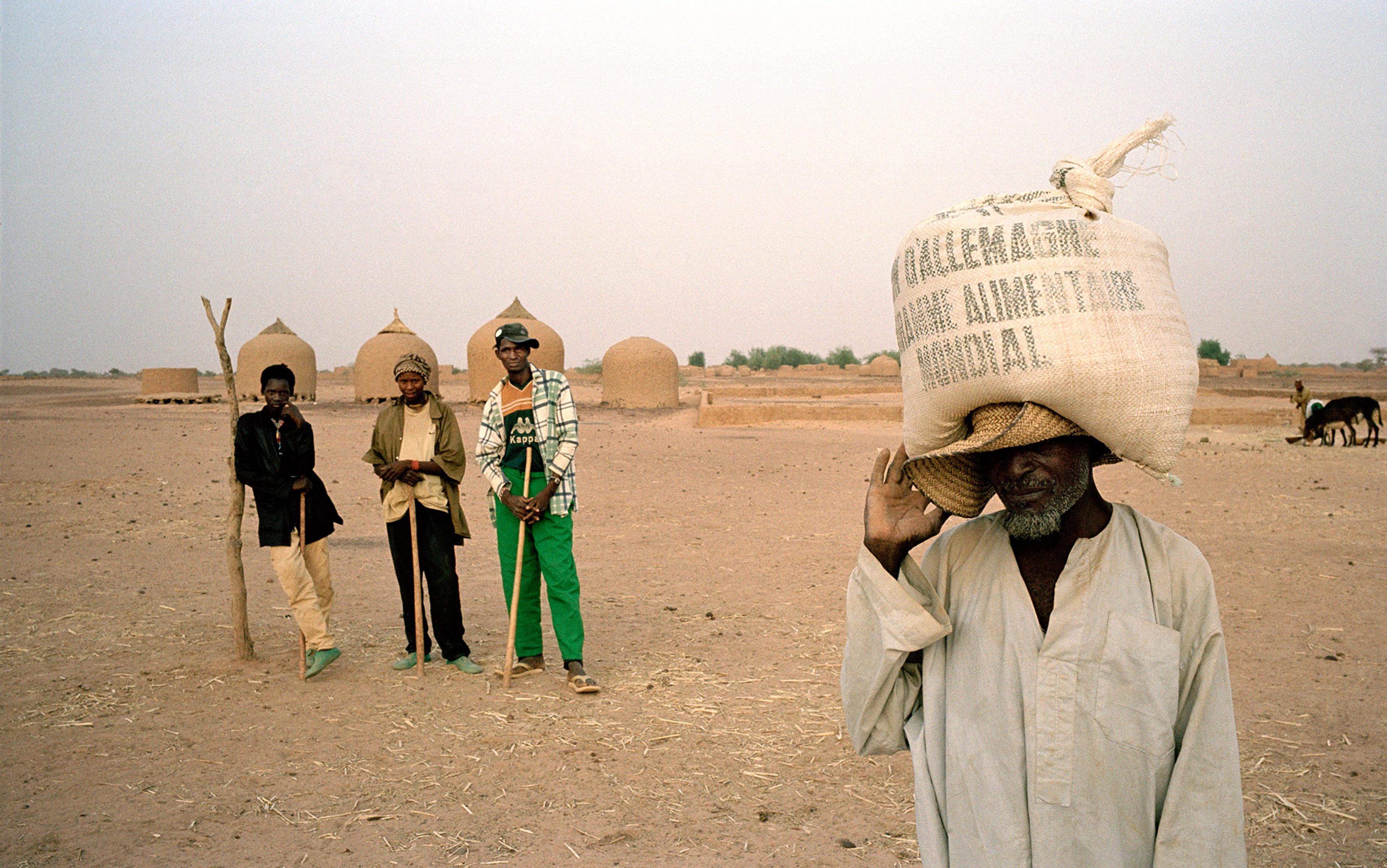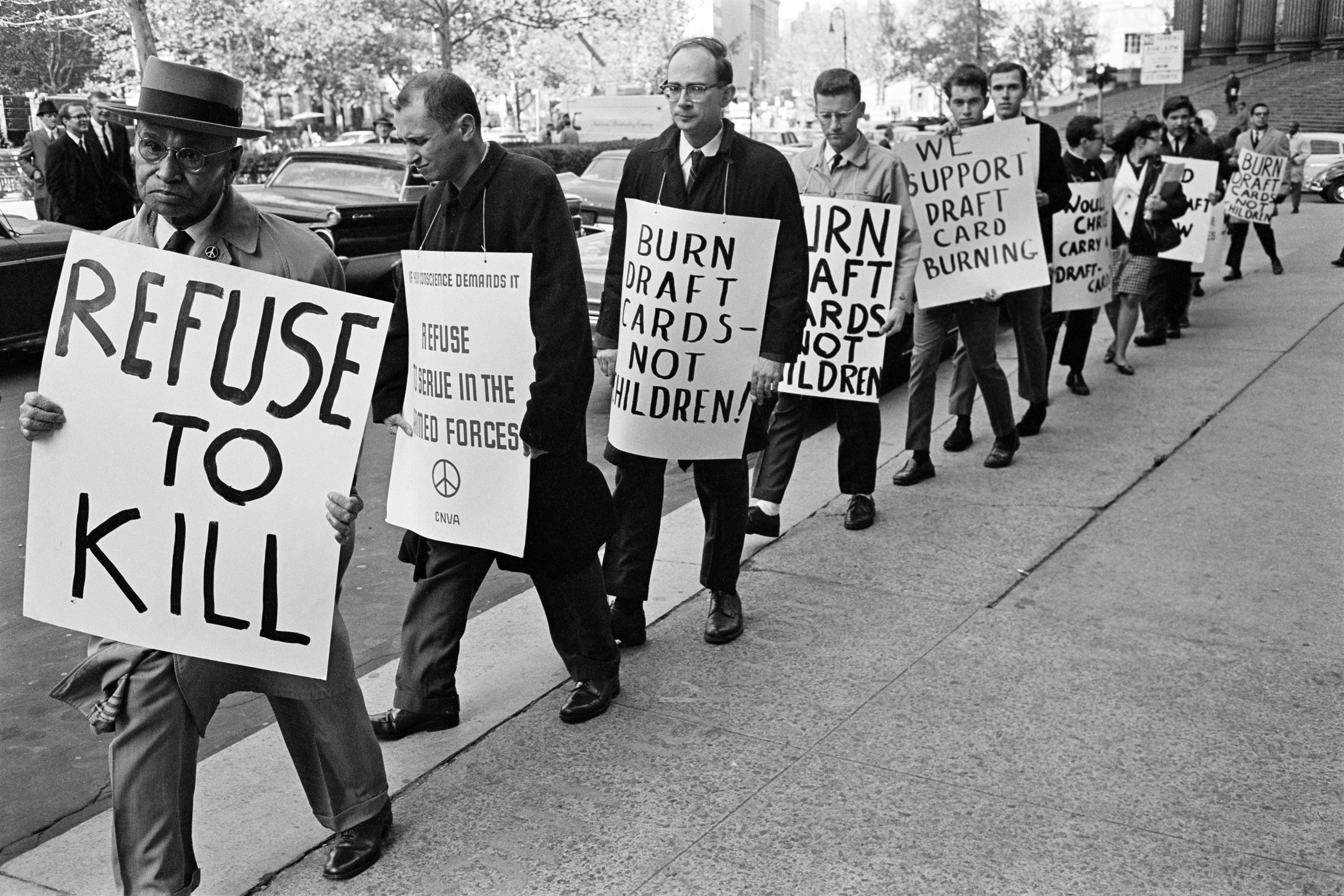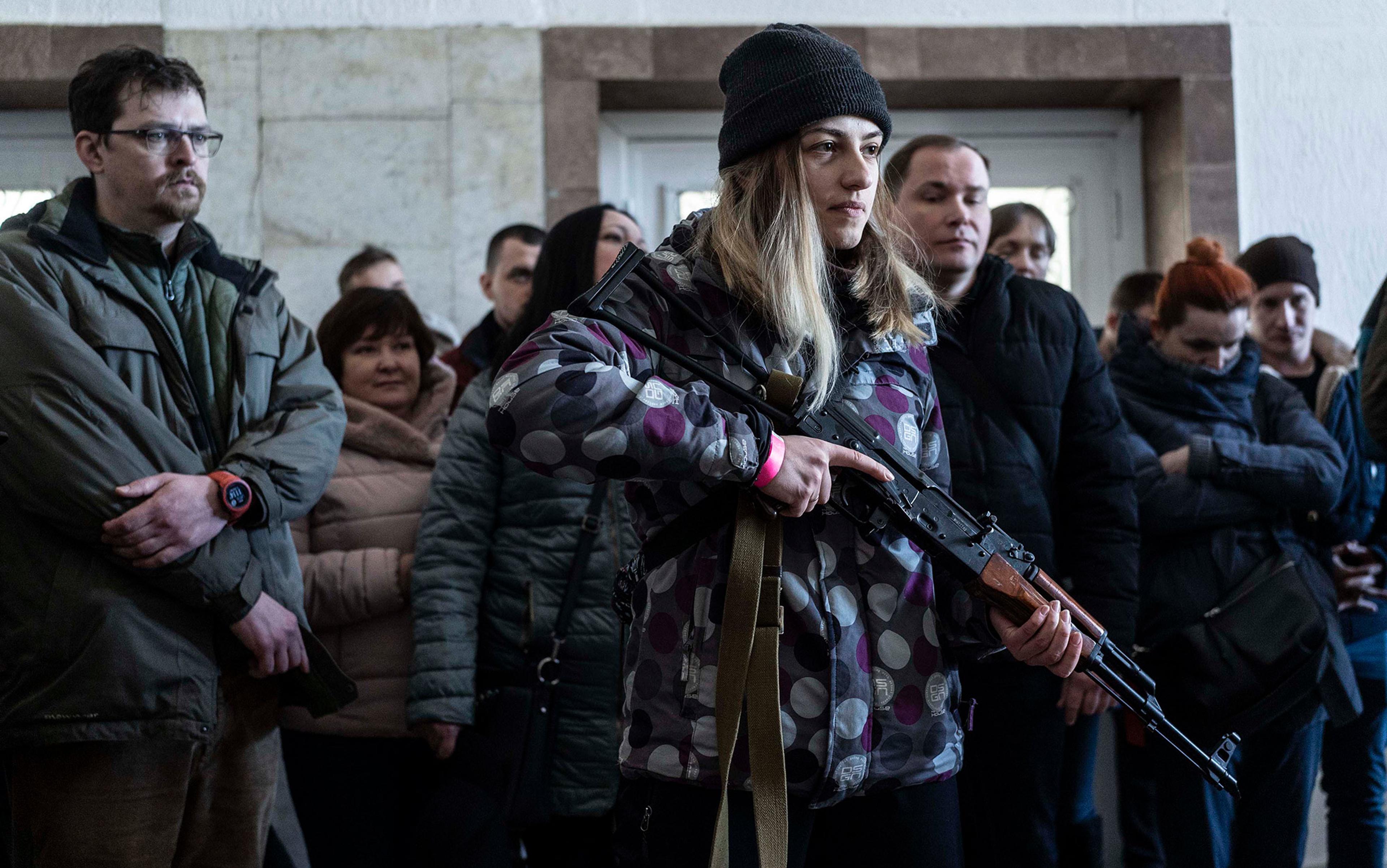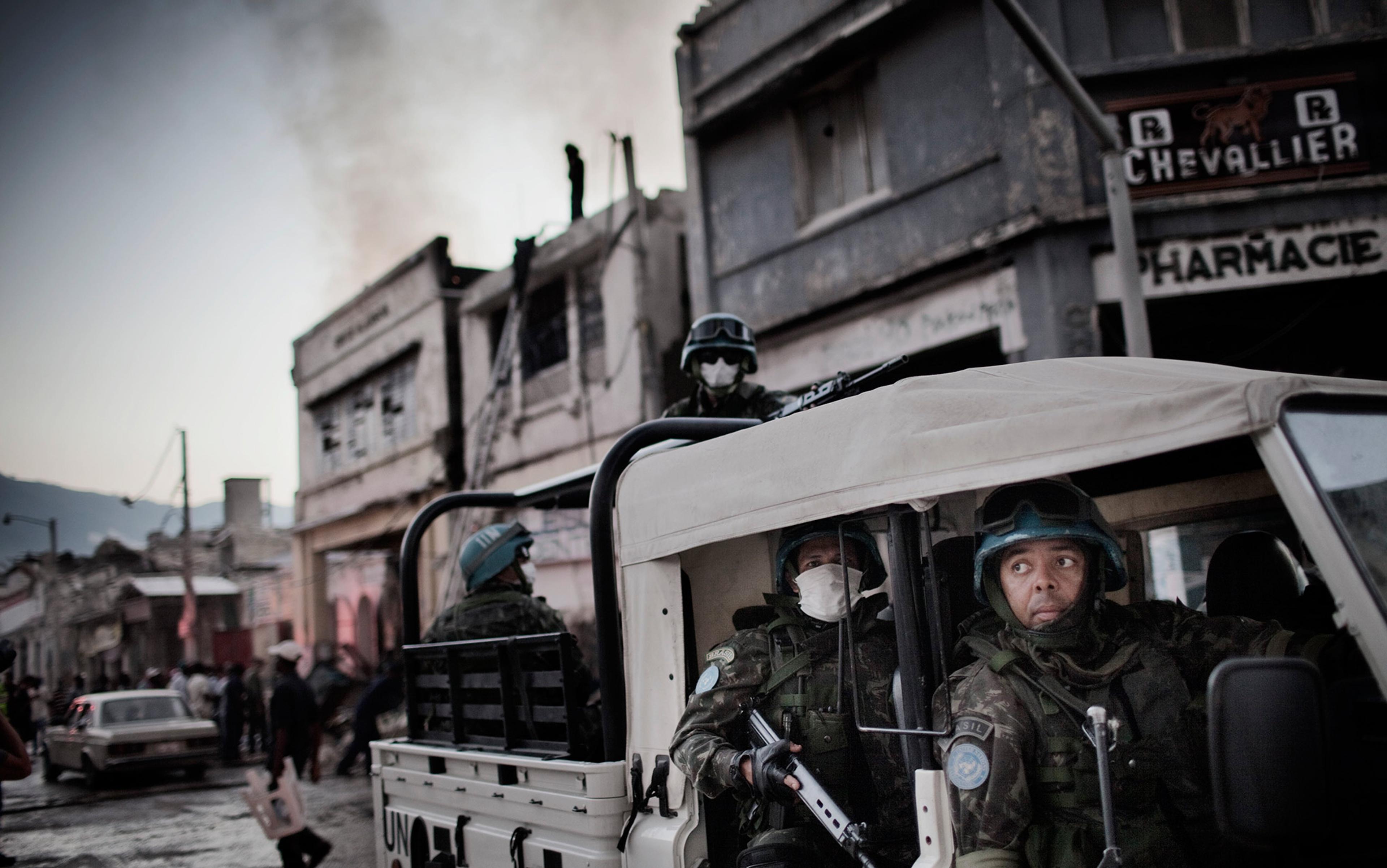‘We will integrate human rights into the life cycle of all staff.’ This phrase, with its strange mix of bureaucratic and moral ambitions, might sound like a piece of Orwellian doublespeak. In fact it is a sincere statement from a policy paper circulated among senior United Nations staff this summer on the need to renew the organisation’s ‘vision’ in the face of massive human rights violations. UN officials have been despondent over their failure to halt the Syrian war and the organisation’s performance in persistent trouble-spots such as Darfur, so the soul-searching is timely. But will it make any difference?
This question reaches beyond immediate crises and the management of people in the organisation. It raises a dilemma about what, if any, moral purpose the UN can pursue in a changing global order. It might seem strange that this needs debating: most people associate the UN with a broad range of do-goodery, such as fighting diseases and feeding hungry children. More abstractly, the principles of international law and human rights that the UN symbolises can stir up remarkable amounts of public passion, as shown by the debates over the invasion of Iraq (and more recent military options in Syria).
But the UN is not a cohesive body with a unifying sense of moral purpose. It is a surprisingly loose network of offices and agencies dealing with everything from tsunami warnings to ‘outer space affairs’. Its most visible components are its humanitarian workers, its economic development programmes, and its peacekeeping operations, which deploy 100,000 soldiers and police officers around the world to keep order in weak states such as Haiti. Even these are not guided by a coherent mission: humanitarian officials desperately try to stay out of politics, for example, and dislike operating alongside armed peacekeepers.
If there’s one thing that binds all these groups together, it is the UN Charter, agreed in San Francisco at the close of the Second World War. The Charter’s main goal was to establish a framework for diplomacy between the main victors of the war against Hitler — principally the US, the Soviet Union and the badly weakened British Empire. It also promised to ‘reaffirm faith in fundamental human rights’, but this was something of a secondary concern, as a number of recent histories have made clear. Mark Mazower, professor of history at Columbia University, notes in Governing the World (2012) that diplomats from smaller countries feared the UN ‘represented a step backward, and that the Great Powers were seeking, under the guise of internationalism, to create a new world directorate’.
The new Security Council — with permanent seats for Britain, China, France, the US and the USSR — gave institutional form to this spirit of realpolitik. Samuel Moyn, another Columbia historian, observes that discussions of the charter involved ‘the practical marginalisation of any idealistic language around which activist groups could or did organise’. In fact, many early advocates for the UN went so far as to argue that its lack of moral ambition was one of its major strengths. There was an idealistic counter-current, of course: in the later 1940s, moralist champions such as the former US first lady Eleanor Roosevelt drove through the formulation of the Universal Declaration of Human Rights, which promised ‘the advent of a world in which human beings shall enjoy freedom of speech and belief and freedom from fear and want’. Nevertheless, throughout the Cold War and up to the present, the organisation’s ideals have remained hostage to haggling between big powers in the Security Council.
It is left to a small core of UN officials, above all the Secretary-General, to try to balance all these forces and weave together a more or less convincing narrative about the organisation’s role in the world order. The post of Secretary-General was originally meant to be largely administrative, but the second man to hold the job, Sweden’s Dag Hammarskjöld, redefined it through a mixture of diplomatic activism and Christian-inspired mysticism. He threw himself into crises in the Middle East and the Congo in the 1950s and early ’60s, launched the UN’s first peacekeeping operations, and aimed to articulate an ethos for international civil servants — one that combined stringent political neutrality with ‘integrity in the sense of respect for law and respect for truth’. He concluded that, in extremis, this integrity must trump political expediency: UN officials could and should speak out against breaches of international law and principles. Hammarskjöld’s beliefs frequently caused him political trouble (although he was a cannier operator than his declaration of principles might imply). Yet his basic conception of the UN as an independent moral force, with an underlying obligation to speak truth to power, is what motivates many UN officials today.
It also defines the organisation’s continued place in the public imagination. This aura of righteousness extends even to the current Secretary-General, Ban Ki-moon, an uneasy figure on the world stage. Despite his lack of charisma, international opinion polls suggest that he is still broadly trusted, and his pronouncements on issues ranging from climate change to Syria’s chemical weapons are respectfully reported. If the UN is to continue to have a ‘vision’ of human rights and broader ethical goals, it is ultimately down to Ban and his advisers to articulate it.
The trouble is, he stands on very weak ground. Like Hammarskjöld and his other predecessors, Ban’s authority in peacekeeping matters depends on his capacity to persuade big powers to take the UN seriously. And whatever the ethical pretensions of the Secretary-General, the UN’s credibility with the big powers still rests on the same foundations as it did in 1945: national interests, hard-headed diplomacy and realpolitik. Morality remains secondary.
Today, strategic and ideological tensions between the US, Russia and China — all too evident in the Security Council discussions over Syria — bring an increasing risk that the UN will be marginalised, its talk of universal human rights lost in the cacophony of big power disputes. This prospect raises some very hard questions. What does it mean to maintain ‘integrity in the sense of respect for law and respect for truth’ in the face of intensifying international divisions? Can UN officials hold on to a sense of moral purpose if world leaders simply do not want to listen to what they have to say? What should their moral priorities be?
The Syrian crisis has brought these questions home to the UN’s leadership, but they caught an earlier glimpse of their possible fate in 2008, when the Sri Lankan army launched an all-out offensive against areas held by the Tamil Tiger rebels in the north of the country. The Tigers, themselves capable of great brutality, once held a large part of the country which they tried to turn into an independent state. By 2009, they were a spent force. China, nurturing strategic ties with Sri Lanka, blocked any serious discussion of the crisis at the UN. India also opposed any interference in its neighbour’s affairs. Western governments, including the US President Barack Obama’s then-young administration, protested, but were too preoccupied with the financial meltdown to do very much more.
The result was a bloodbath. It is now generally accepted that at least 40,000 civilians were killed over the course of the conflict. But the crisis was also a humiliation for the UN, which had long deployed development experts and humanitarian officials in Sri Lanka. As the scale of the killing became clear, critics asked why these officials had not spoken out more forcefully. The UN Secretary-General Ban Ki-moon, who was also accused of timidity, commissioned a report on the UN’s actions. It came out last November, and proved even grimmer than expected.
The report concluded that ‘some senior staff did not perceive the prevention of killing of civilians as their responsibility’. They were so concerned about the risks of offending the Sri Lankan government that they did not even keep proper count of fatalities. The paper emphasises a failure of leadership at almost every level. The senior official on the ground was a development specialist with no expertise in politics or human rights law, and he seemed painfully confused about what to say or do. His superiors in New York and Geneva failed to offer him worthwhile guidance, shying away from formulating a coherent strategy to put pressure on the Sri Lankan government. In one extraordinary diplomatic gaffe, Ban’s special adviser on the prevention of genocide privately reassured the Sri Lankan ambassador to the UN that he would not raise the killings in public.
One UN official who served in Iraq compared his status to that of a toothless old man
When Ban’s advisers started to learn of the report’s findings, they wondered if it might cripple his tenure as Secretary-General. In the end it had little lasting public impact. This might be because it stopped short of blaming Ban personally. It could also be because the original crisis never lodged very deeply in the popular imagination.
Nonetheless, the report did resonate among UN officials and the influential advocacy groups that follow their activities closely. Many compared the episode to the 1995 Srebrenica massacre, when Bosnian Serbs overran a ‘safe area’ guarded by UN peacekeepers and slaughtered 8,000 captives. But the comparison is inexact. Had UN commanders been more determined to defend Srebrenica, they could have mobilised NATO aircraft and pushed the US and European governments to commit more forces to the fight. In Sri Lanka, the UN had no military option. The divisions in the Security Council meant that the idea of sending in a peacekeeping force (vaguely floated by some advocacy groups) was a political impossibility. The only real tools left to the UN were its powers of moral and political persuasion.
And what do those powers amount to? In an end-of-mission report leaked to The Guardian in 2007, Álvaro De Soto, a veteran UN official with a record of success of peacemaking in Central America, portrayed his stint as mediator between Israel and Palestine as a dark comedy: ‘I have frequently felt like the Black Knight in Monty Python and the Holy Grail who, after having both legs and both arms lopped off by the king, still accuses his adversary of cowardice and threatens to bite off his legs.’ Another UN official who served in Iraq at roughly the same time compared his status to that of a toothless old man. The UN mission in Baghdad had been deployed in 2003 to help clear up after the American-led invasion but had been maimed by a bombing that killed 22 of its best staff in August 2003. Politically peripheral and always on watch for another attack, it could do little to help during Iraq’s descent into civil war.
Unlike Srebrenica, the Syrian conflict actually does bear a certain resemblance to Sri Lanka, with all that this implies for the UN’s freedom to intervene. Once again, a government has implacably decided to use force against its citizens. Once again, major powers (this time Russia and China) have chosen to protect the abusers. As before, Western powers including the US have equivocated over how to act. There has arguably been only one positive difference: Ban Ki-moon and his advisers have not shied away from the crisis. Instead, they repeatedly tried to put public pressure on Damascus.
This might say a little about the moral evolution of Ban. From his arrival at the UN in 2007 to roughly 2010, the former South Korean foreign minister was widely criticised inside the UN for his inability to articulate urgent moral issues. In mid-2009, grading his performance in the first half of his first term, The Economist gave Ban three out of 10 for ‘speaking truth to power’. But, possibly because he saw the implications of the Sri Lankan debacle, he has changed his tune. He won praise for speaking out unexpectedly forthrightly over crises in Kyrgyzstan and Côte d’Ivoire in 2010, and then surprised his critics by being one of the few international leaders to grasp the implications of the Arab Awakening.
Ban came out in support of the protesters in Egypt well before President Obama in 2011, and was also quick off the mark to call on the Libyan and Syrian governments not to attack their people. He boasted of arguing with Syria’s president Bashar al-Assad on the phone and urging him to pull back from violence. As the Syrian crisis has escalated, the UN has kept up its focus, deploying human rights experts, special envoys, peacekeepers, humanitarian agencies and chemical weapons experts to try to find diplomatic openings. If conflicts could be resolved simply by expending UN officials’ energies, Syria would now be in total peace.
But of course, it has spiralled into an appalling war. Early on, Assad stopped taking Ban’s phone calls. The Syrian president treated Ban’s two envoys, Kofi Annan and Lakhdar Brahimi, with contempt. Each envoy in turn grew increasingly critical of Assad, but one can argue that their outspokenness only emphasises the UN’s impotence. If Sri Lanka showed what can happen when the UN fails to speak truth to power, Syria has shown how little truth-telling can achieve. When the Security Council deployed a small team of military observers to Damascus in mid-2012, I wrote a piece in the World Politics Review arguing that the mission would be a ‘heroic failure’. Staff members who were heading to Syria contacted me to say that this was the best they were hoping for; their first priorities were to protect the UN’s reputation and to bear witness to the savagery of the conflict in the hope of shaming either the Syrian regime or the Security Council.
If the problem was simply that Assad himself did not care about the UN, the consequences would be limited though tragic enough. But one of the striking aspects of the Syrian crisis has been the refusal of Russia and China to co-operate with the West — or to take Ban’s entreaties seriously — despite the mounting evidence of carnage. By August 2013, when evidence emerged that the Syrian regime had made large-scale use of chemical weapons, the UN’s credibility was at breaking point. President Obama referred to the Security Council as ‘hocus-pocus’.
The Syrian story is a worrying indicator of how the main global powers might behave towards major crises at the UN in future. With Moscow at odds with Washington on issues from the American fugitive Edward Snowden to gay rights, it is not hard to imagine that there will be further Russo-American flare-ups in the Security Council (thankfully, Russia has avoided creating all-out disruption to date). For its part, China appears too preoccupied by its rivalry with the US in the western Pacific to pay much attention to UN affairs.
There is a real danger that the UN’s moral authority will fade as great power politics worsen
In these circumstances, Ban Ki-moon and the UN more broadly are likely to see the power of their moral appeals wane further. This does not mean that the UN will become entirely irrelevant to world affairs. It continues to play an important role on issues such as economic development and disburses over $25 billion in aid each year. Yet their hard work might not be sufficient to sustain the UN’s role in international high politics.
There is a parallel here with the UN’s precursor, the League of Nations. In the 1930s, as the diplomatic historian Zara Steiner notes, it kept up good works on social and economic policies. ‘These were undoubtedly worthy tasks,’ she wrote in The Triumph of the Dark (2011). ‘Yet in recognising these advances, one must not overlook the cheerless truth that during the later 1930s the League was perceived to be, and indeed simply was, a failure.’ We are thankfully still in a far less threatening period, but there is a real danger that the UN’s moral authority will fade as great power politics worsen.
Over much of the past year, a team overseen by Ban’s deputy, the Swedish diplomat Jan Eliasson, has been working out a response to the Sri Lanka report. Although complicated by in-fighting over turf issues — such as the procedures for appointing senior UN staff to volatile countries — there has been a genuine attempt to define a vision of the UN’s basic responsibilities in times of crisis. Through shifts in personnel management (‘we will integrate human rights…’), training and other technical reforms, Ban Ki-moon might be able to guide the UN system to address major abuses in a more coherent fashion, translating his own, newly invigorated attitude into broader institutional improvements.
That would be an achievement, and Ban will need to invest personal political capital in this goal if he wants to make any real impact. Nonetheless, it is ironic that UN officials are talking about the UN’s vision of what to do in bloody crises just as major powers are falling out over the same issue. Rather than set a positive agenda for human rights during the remainder of his time as Secretary-General (which expires in December 2016), Ban Ki‑moon could find that his primary task is to ensure that the UN does not lose sight of its moral principles amid fierce international competition. For UN officials in war zones, the years ahead will surely involve a long struggle to defend basic human rights and the laws of war against worsening odds. Hammarskjöld’s injunction to maintain integrity in the face of political pressure could prove brutally hard to fulfil. But it will be essential to maintaining the UN’s fragile status as a voice for decency and human rights in international affairs.
The costs of speaking out can be enormous. Hammarskjöld died in an air crash in the Congo in 1961. There have long been rumors that a cabal of Western spies and mercenaries arranged his death to halt the UN’s interference in their former African colonies. Most historians and UN officials have dismissed this as Cold War conspiracy theory, but recent investigations have concluded that there is credible evidence to support it after all. While it is unlikely that intelligence agencies are currently planning to assassinate Ban Ki-moon, he could pay a significant political price for standing by the UN”s values in future crises. His willingness to accept this risk will define not only his leadership but the UN’s status as, in Hammarskjöld’s words, the ‘front line of a moral force’.






